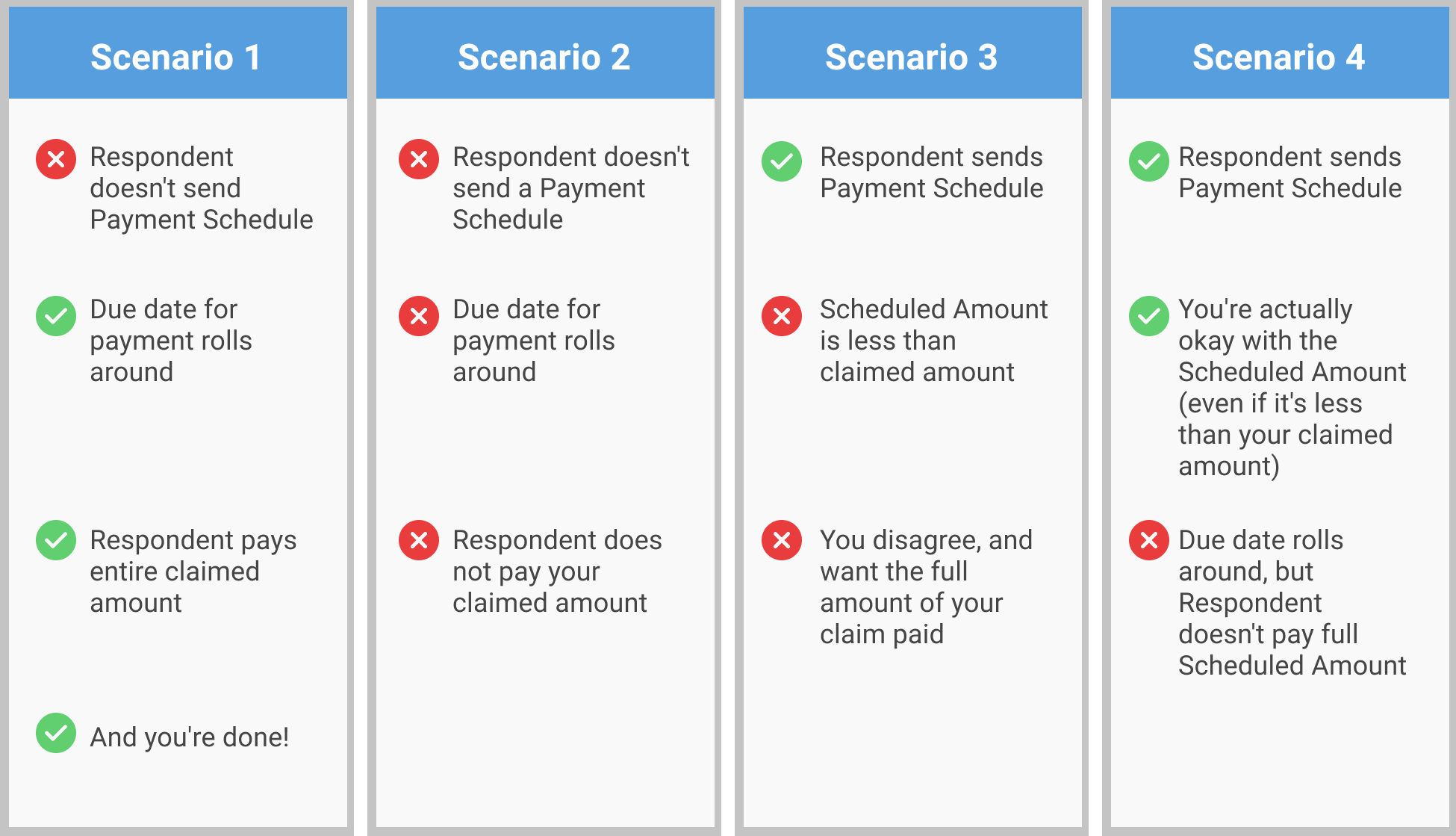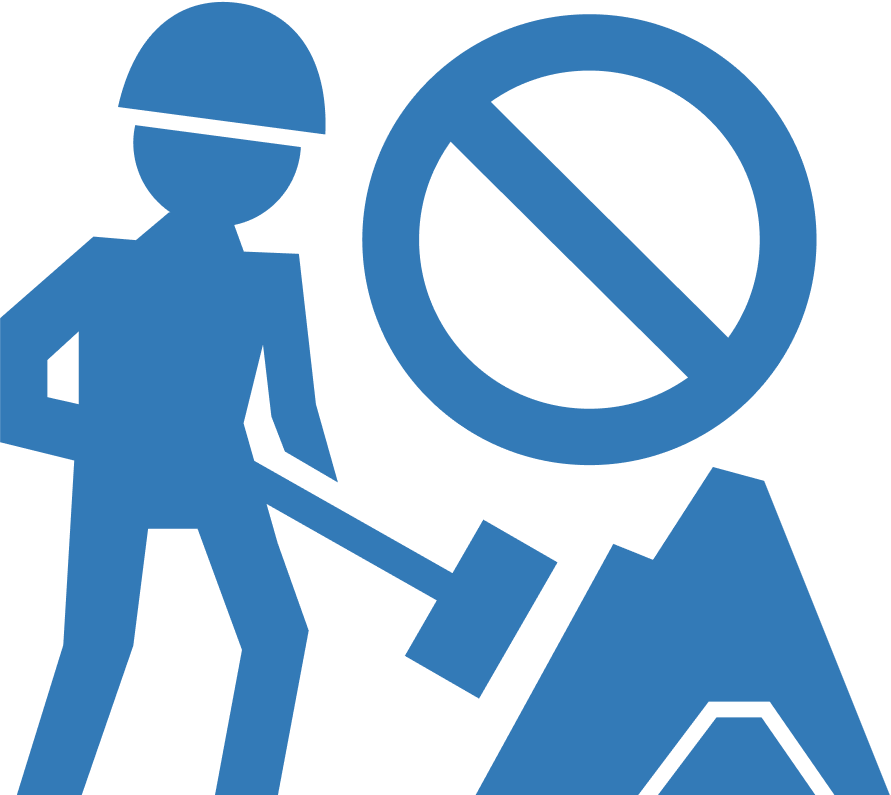The Security of Payment Process in 4 Steps
The Building and Construction Industry Security of Payment Act 1999 (NSW) or the Security of Payment Act (NSW) allows you to claim payment for construction work performed – without unnecessary delay.
Step 1. All you need to do is send a Payment Claim to the Respondent, i.e., the person who is bound to pay you for construction work performed.
Step 2. This would trigger a period of 10 business days (or such period as provided in your construction contract) within which the Respondent would need to send you a Payment Schedule, which contains the amount they propose to pay (“Scheduled Amount”) in lieu of the amount you claimed in your Payment Schedule.
If they don’t send a Payment Schedule, they would have to pay the full amount of your claim. The due date for this payment will be found in your construction contract.

Step 4. Enforce payment. In scenarios 2, 3, and 4, you have the following options for enforcing your payment claim:

Why Adjudication
Of the three remedies enumerated above, Adjudication would be the most effective and convenient, and also the least costly.
Related Content: Adjudication Process in Construction
Lodging an Adjudication Application
When and how to lodge an Adjudication Application would depend on the reason you’re electing to undergo Adjudication.

If Respondent doesn't serve a Payment Schedule, and doesn't pay your claimed amount when due
1. Before you can proceed to Adjudication, you need to give the Respondent a second chance to send a Payment Schedule.
2. This second & final chance should be embodied in a “section 17(2) Notice”
3. Quick facts about the section 17(2) Notice:
- it's a written notice be sent to on Respondent
- its purpose is to inform them of your intention to apply for adjudication, while giving them a chance to send a Payment Schedule before adjudication
- it should contain the following facts:
- they have 5 business days to either send a Payment Schedule, or pay the Payment Claim in full
- if within those 5 days, they don't send a Payment Schedule and also don't pay the entire claimed amount, then you will proceed with the application for adjudication, where they will not have a right to make an Adjudication Response
4. In this scenario, the matter will not necessarily head straight to adjudication.
If: The Respondent pays the full amount of your claim within 5 business days from receipt of the Section 17(2) Notice,
Then: You’re done! No need for adjudication since they’ve already paid the full amount of your claim
If: The Respondent serves a Payment Schedule within 5 business days from receipt of the Section 17(2) Notice,
Then:
- a) if you agree with their proposed amount, then no need for adjudication (unless they don’t pay said amount)
- b) if you don’t agree with their proposed amount, then you may proceed to adjudication, with the Respondent having a right to participate by filing an Adjudication Response
If: The Respondent does not serve a Payment Schedule, nor pays the full amount of your claim,
Then: You can proceed to adjudication, but they at this point, have lost their right to file an Adjudication Response
Note that in the above cases, Application for Adjudication must be done within 10 business days from the date of expiry of the section.17(2) notice.

If Respondent serves a Payment Schedule, but doesn’t pay the scheduled amount
In this case, you have 20 business days from receipt of the Payment Schedule to apply for Adjudication.

If Respondent doesn't serve a Payment Schedule, and the scheduled amount is less than the claimed amount

How We Can Help
Contracts Specialist has over 10 years experience in debt recovery and Security of Payment. Should you wish to learn more about how to enforce your claim under the Act, or should you require assistance in facilitating your payment claims, feel free to give us a call. Your first consult is free.
Related Content: Security of Payment Lawyer




